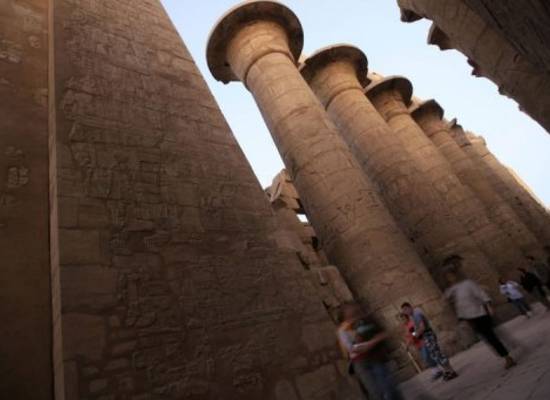
(Photo by Ahmed Al-Malky\DNE)
The Press Syndicate elected a new chairman on Friday, voting in journalist Yehia Qallash.
Qallash was awarded the post by a clear margin of 1,948 votes to incumbent Diaa Rashwan’s 1,079, in a ballot held across Cairo and Alexandria.
Outgoing chairman Rashwan, previously a political analyst and head of Al-Ahram Center for Political and Strategic Studies, was elected to lead the Syndicate in March 2013. He has, however, been criticised for failing to defend the rights of journalists in Egypt.
Qallash previously ran for the top syndicate position in late-2011, but lost out to Rashwan’s predecessor Mamdouh El-Waly who had the backing of the Muslim Brotherhood.
Qallash is also a long-time unionist and member of the Syndicate. While Qallash most recently has been working at pro-regime state-run newspaper Al-Gomhoriya, he is seen as more supportive of independent press and media freedom than Rashwan.
Qallash has campaigned on matters of press freedoms and journalists rights since the 1980s. He participated in the establishment of the National Committee for Defending Freedom of Expression. During Mohamed Morsi’s presidency, he served as its spokesperson, speaking out against attacks on freedoms and rights of the media.
Prior to his election, Qallash stated that one of the most pressing issues is to “restore confidence to the Syndicate again”. This should comec after a period where it has become synonymous with government support, to the detriment of defending its members.
Similarly, prior to the announcement of the election’s results, a Syndicate general assembly condemned violations journalists, and called for a stronger approach in dealing with attacks on the industry. Secretary General of the Syndicate Council Karim Mahmoud called for the immediate release of all imprisoned journalists, for the Syndicate to reassert its independence from the government and “put pressure on the authorities to investigate the deaths of more than a dozen reporters”, state news reported.
Because of tight registration rules, it is believed there are thousands of journalists in Egypt who are not registered with the Syndicate. Only full-time journalists at listed outlets are currently eligible, leaving many employees of media organisations that are, for instance only digital, ineligible for accreditation.
Membership brings benefits such as a monthly stipend to support journalists as well as protection, though many have criticised the Syndicate for being weak in defence of its members under Rashwan’s tenure. Rashwan was also believed to have supported that unregistered journalists should be prohibited from working.
Shahira Amin, a broadcast journalist and former deputy-head of state-owned Nile TV, said in a comment to Daily News Egypt: “[It is] good to see the back of Diaa Rashwan…Egypt witnessed [the] biggest number of journalists jailed in this time. It has also been a time of unprecedented restrictions and censorship of the press. Seventeen editors signed a petition pledging to refrain from criticising government. He even warned journalists against covering protests for their own safety.”
Amin, who quit her role at Nile TV in protest at biased coverage of the 25 January Revolution, referred to a controversial October 2014 letter signed by newspaper editors in which they promised to refrain from criticism in their coverage of the government and army activities.
Other recent crack-downs on press freedom under Rashwan’s tenure have included a March issue of daily private newspaper Al-Watan that was returned from the printers. The edition was pulled from the press over a report that was due to expose state organisations including the Ministry of Interior and Presidency were not paying tax.
There are believed to be 23 journalists currently imprisoned in Egypt, including eight members of the syndicate. Ten journalists have been killed while reporting events over the past four years, according to reported syndicate estimates.
A December report by Reporters Without Borders ranked Egypt as the second worst country in the world for the number of journalists arrested. It also termed Egypt the world’s fourth “biggest prison” for journalists, in its annual roundup on abuses of press freedom. It ranked the country 159th out of 180 in its press freedom index, below Russia, Turkey and the UAE.
The NGO summarised that in the year preceding December 2014, 46 journalists were arrested in Egypt and those imprisoned represented almost 10% of all jailed journalists worldwide.

